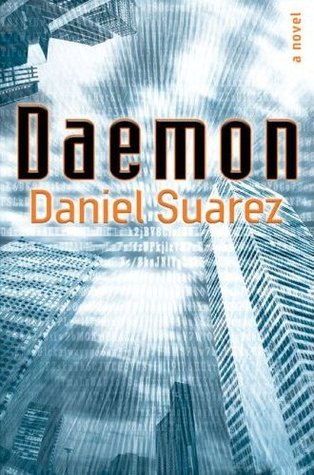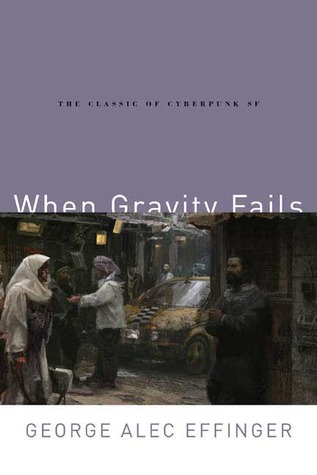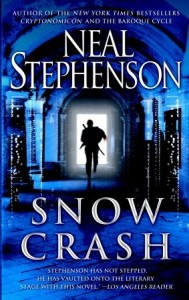 First Steps is a new segment that was inspired by the Literary Exploration Reading Challenge. Each week or two, we look at books from different themes, genres or maybe authors and suggest some that are worth trying. Not necessarily all easy to read books but the ones that are worth the time and effort. My goal is to have First Steps guide you to some great books in places you don’t normally venture to.
First Steps is a new segment that was inspired by the Literary Exploration Reading Challenge. Each week or two, we look at books from different themes, genres or maybe authors and suggest some that are worth trying. Not necessarily all easy to read books but the ones that are worth the time and effort. My goal is to have First Steps guide you to some great books in places you don’t normally venture to.
Cyberpunk is a genre I have found many people struggle with, especially in the Literary Exploration Reading Challenge. I’m not sure if this is a lack of recommendations or they just not sure what this genre is all about. Cyberpunk is a futuristic world that focuses on “high tech and low life[s]” (according to What is cyberpunk? From Cyberpunked: Journal of Science, Technology, & Society 2009). Think post-industrial dystopian worlds with advanced technology and cybernetics; science fiction normally with a touch of thriller, mystery or pulp.
Movie examples would include Blade Runner, Ghost in the Shell, Tron, The Matrix and Surrogates. On TV think Dark Angel or Dollhouse and in video games there are heaps of examples but the best two are; Deus Ex or Watch Dogs. This is a genre that is almost dying out, technology advancement has been accepted by most and often used in science fiction or dystopian novels, but it does leave behind a couple of new sub genres; steampunk and dieselpunk.
This book is big but lots of fun; it follows two protagonists hunting down a virus in the not so distant future. A world where the United States has yielded most of its power to private organizations and entrepreneurs. Everything has been franchised, from armies, highways to even suburbs.
 Daemon by Daniel Suarez
Daemon by Daniel Suarez
Technology controls almost everything in our modern world, from remote entry on our cars and the flight controls of our airplanes to the movements of the entire world economy. But what if some computer designer has been planting a dormant daemon in everything that he creates that will take full control of everything connected to a computer when he dies.
 Altered Carbon by Richard K. Morgan
Altered Carbon by Richard K. Morgan
In the twenty-fifth century, technology has advanced so much that human personalities can be digitally stored on what is known as a Stack. These stacks can be downloaded into new bodies or sleeves, so when you die your stack can be stored indefinitely and you can be resleeved and continue living. Death is impossible, or is it?
 Neuromancer by William Gibson
Neuromancer by William Gibson
This is a seminal cyberpunk novel by the legend himself; William Gibson. The first novel to ever win the “Triple crown” in science fiction (winning the Nebula Award, the Philip K. Dick Award, and the Hugo Award). This follows the story of a low-level hustler, hacker and thief in the dystopian underworld of Chiba City, Japan.
 When Gravity Fails by George Alec Effinger
When Gravity Fails by George Alec Effinger
A new kind of killer roams the streets of the Arab ghettos of Budayeen, a madman whose bootlegged personality cartridges range from a sinister James Bond to a sadistic disemboweler named Khan. The unique blend of Middle Eastern culture and religion and cyberpunk noir makes this highly recommended.


 As we close out the first half of 2013, I thought I might give a quick update on what’s been happening with the
As we close out the first half of 2013, I thought I might give a quick update on what’s been happening with the  Title: Snow Crash (
Title: Snow Crash ( Title: The Round House (
Title: The Round House (